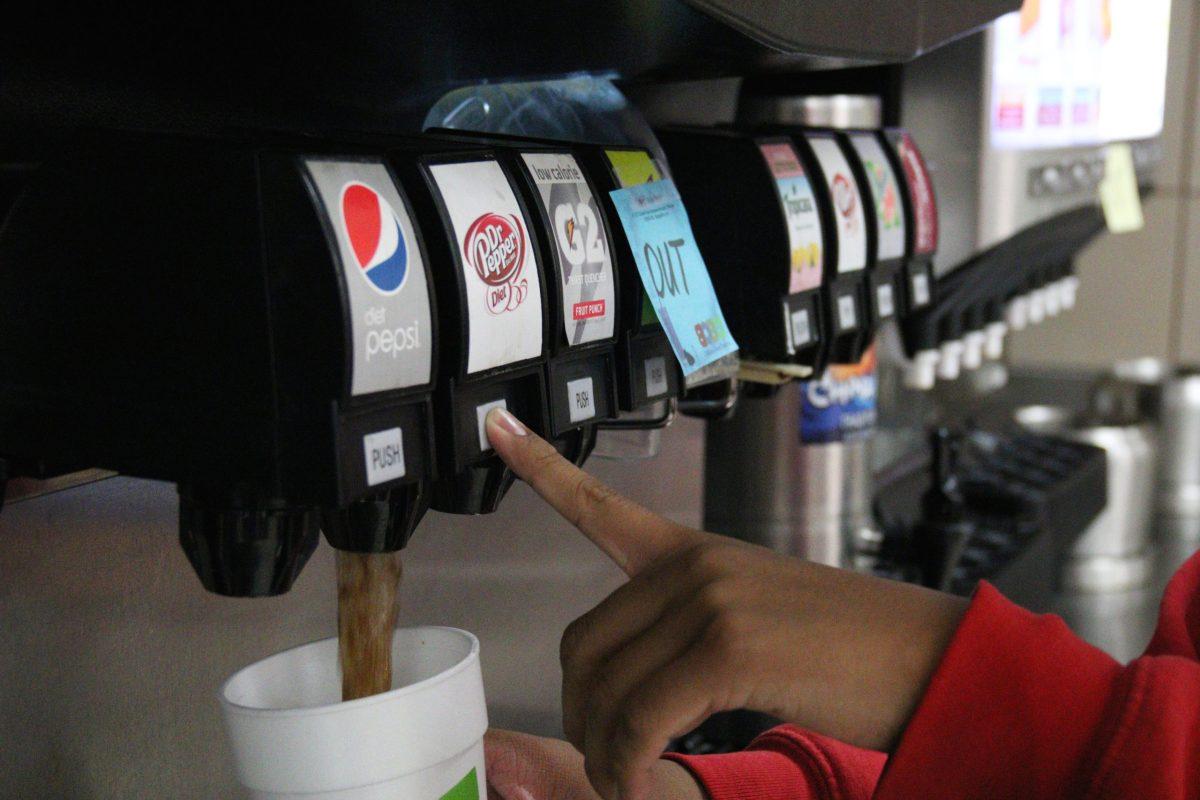Photo by Raymond Link ’20| Brophy student gets a diet fountain drink from the soda machine at Michael’s in the Great Hall.
By Hunter Franklin ’19
THE ROUNDUP
Brophy College Preparatory committed to only serving diet soda on campus eight years ago to meet national standards set by the U.S. Department of Agriculture.
Ever since the Healthy Food and Hunger-Free Kids Act was enacted in 2010, the U.S. Department of Agriculture has been striving to make food served at schools healthier.
Brophy decided to remove regular soda from campus when this came into law, but is diet soda actually any healthier than regular soda?
According to nutritionists and experts in the field of medicine, diet soda isn’t.
The original health explanation for people switching to diet soda was that regular soda led to higher rates of diabetes and obesity with it’s excessive amounts of sugar and caffeine.
Recent studies show that diet soda is just as bad as regular soda.
Most of the health problems that arise from diet soda come from the artificial sweeteners that are used in them as a supplement to sugar. These artificial sweeteners such as saccharin, aspartame and sucralose have been known to cause cancer, type 2 diabetes, strokes, dementia and increased risk of obesity.
Various studies involving lab rats have shown that these artifical sweetners, if consumed in extremely high doses, can cause cancer.
“Studies in laboratory rats during the early 1970s linked saccharin with the development of bladder cancer, especially in male rats,” writes the National Cancer Institute.
The Razmazzini Institute, an Italian scientific research group, has reached similar conclusions in recent years by giving rats doses of various artificial sweetners.
“A 2005 study raised the possibility that very high doses of aspartame might cause lymphoma and leukemia in rats,” claimed the National Cancer Institute.
“In 2016, the same laboratory that conducted the aspartame studies discussed above reported an increased incidence of blood cell tumors in male mice fed high doses of sucralose,” reported the National Cancer Institute.
Diet soda has been found to be 600 times sweeter than regular soda. By having little to no real sugar, carboydrates or calories, it can confuse our gut leading to metabolism problems. Studies have shown that diet soda gradually changes our metabolism and gut bacteria. This increases our levels of Insulin, thus putting many people at risk of type 2 diabetes.
“We found that those people who were consuming diet soda on a daily basis were three times as likely to develop both stroke and dementia within the next 10 years as compared to those who did not consume diet soda,” said reseacher Matthew Pase from Boston University School of Medicine, whom contacted NBC News.
Consumer Reports cited evidence from The Clinical Journal of Pain in 2009 which suggested that copius amounts of articial sweetner could cause head aches or exasterbate current headaches for those with migraines.
These new findings should be disturbing to any school who currently serves diet soda on their campus but does so out of striving to provide healthier beverage options for their students.
With this new knowledge, Brophy should act now and remove diet sodas from campus, as they pose serious long term health risks to students and faculty.




















